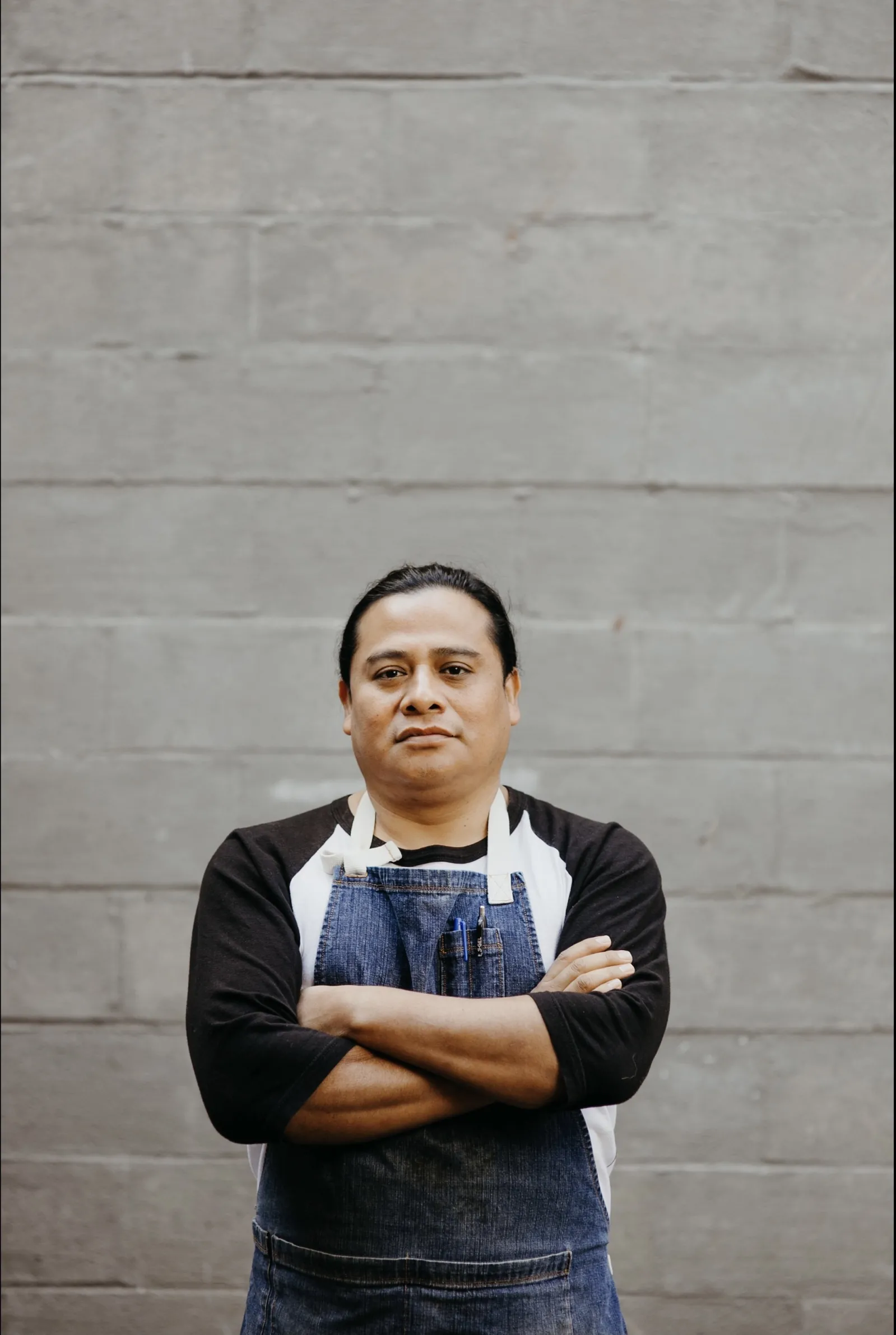This Native American Heritage Month, we want to amplify and celebrate the voices of Native Americans connected to our work of ending childhood hunger in the U.S. Today's post features Neftali Duran a member of the ñuu savi / Mixteco community who serves as program coordinator for our sister campaign, Cooking Matters.

As we celebrate Native American Heritage Month, I am honored to share my personal story and journey.
I was lucky to be born in the state of Oaxaca in Mexico to a ñuu savi / Mixteco family cultivating the land since time immemorial. I remember as a child the smell of my abuela Rosenda’s smoke-filled kitchen. I remember her handing me fresh tortillas to eat. But, even with these good memories, I wish I could tell you that my childhood was beautiful and nourishing.
My mom, Ofelia, left her community as a teenager to become an internal migrant Indigenous worker. Internal or displaced migrant workers stay within the borders of Mexico rather than traveling to other countries to find work.
My mom was young, had few resources and struggled to keep food on the table for her six children. I can tell you that being hungry as a child leaves physical scars -- but, more importantly, emotional ones -- that follow us for the rest of our lives.
Systems of oppression that still exist limited my mom’s ability to thrive as an Indigenous person, especially as a single mother. For many years, she exercised her skills as a fantastic cook while a domestic servant; my mom made her living as a cook while her children went hungry.
Like my mom, most Indigenous Oaxaqueño people work as cooks and farmers while not having enough to feed their kids; they are targets of food apartheid. This reality is the continuation of colonial systems design to keep Indigenous people oppressed.
I crossed the northern border as an undocumented teenager to the U.S. and spent the next two decades working in the restaurant industry. When I came to Share Our Strength, the organization behind No Kid Hungry, in 2018, I saw our mission aligned with the Indigenous food sovereignty movement. Our commitment to understanding past and ongoing injustices in the communities we serve is just as critical as developing a relationship with seeds, soil and nature.
The Indigenous food sovereignty movement recognizes that all life is connected and we all do better when we take care of each other. Indigenous people are the caretakers of 80% of the world’s biodiversity. We feed ourselves and the earth and have for thousands of years. As long as we have a relationship to the land, culture and traditions, Indigenous peoples will continue to lead in social justice causes like hunger and climate change.
Unfortunately, the ongoing colonialism that oppressed my mom and Indigenous peoples today makes it hard for children to survive, let alone thrive.
First we must recognize its perpetual harm; then work toward the solutions needed to do better. I have seen the vulnerability of my coworkers as our team learns about social justice movements, listens to our colleagues’ wisdom and shares personal growth stories.
Our daily work reminds us that our liberation is intersectional and that our pursuit to end childhood hunger is worthwhile.
We as an organization envision a world in which food is no longer a privilege but a human right. I cannot express how crucial policy work is to bolster Indigenous communities and strengthen food sovereignty. As someone who is in communities delivering our food skills education, I hear constantly about the importance of well-established programs, such as SNAP and WIC, and newer policy wins, including the GusNIP program and the Child Tax Credit.
Through Share Our Strength’s policy work, I hope we influence federal programs that consider the importance of culturally-appropriate meals. These initiatives should include Indigenous migrant communities, reservations and urban Native neighborhoods.
I consider myself extremely lucky to have had a community of people who nourish me and push me to learn and dream, mentors encouraging me to dream big and reach high. I consider myself lucky to have been part of the national Indigenous food sovereignty movement since 2011 and co-founded the I-Collective in 2017.
I am telling you this to drive home that an Indigenous child can also learn how to lead, when allowed to learn and reach. This November, I desire we learn about real Native American history, reflect on how Share Our Strength uplifts or stifles Indigenous food sovereignty endeavors, and how we can double down our commitment to do better. Most importantly, I want you all to celebrate Indigenous joy, the joy of a full belly laugh of a child, the joy of a multigenerational meal shared in the community, the joy that comes from the commitment to allyship and raw community building.
I am inspired whenever I see work and commitment toward racial justice and equity. I am inspired to know that ending childhood hunger is contributing to Indigenous food sovereignty and self-determination.
I am happy to tell you that a few years ago, my mom went back to our community and is working the land after decades of not being rooted and in communion with the soil. She is 74 years old and grows corn, beans and squash. She's building a 400-tree orchard. I want to ensure that people like her and I can dream and achieve a relationship with the land of our ancestors. The more we support Indigenous-led solutions, the more this vision will be a reality.
Learn more about the ways you can help hungry kids or make a donation today.


